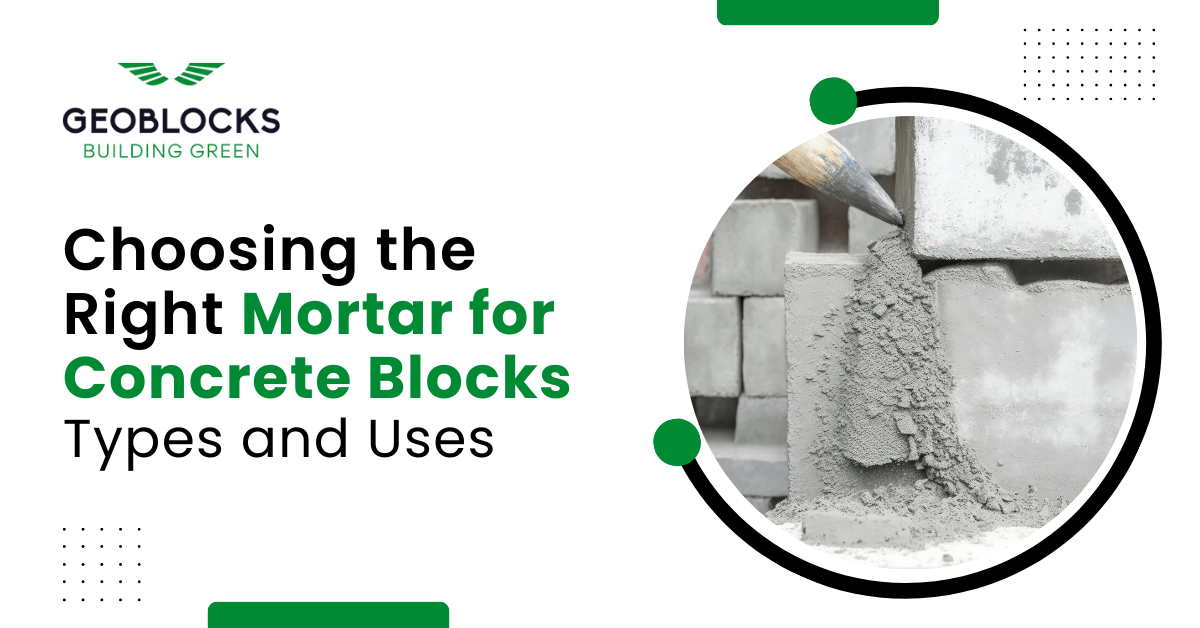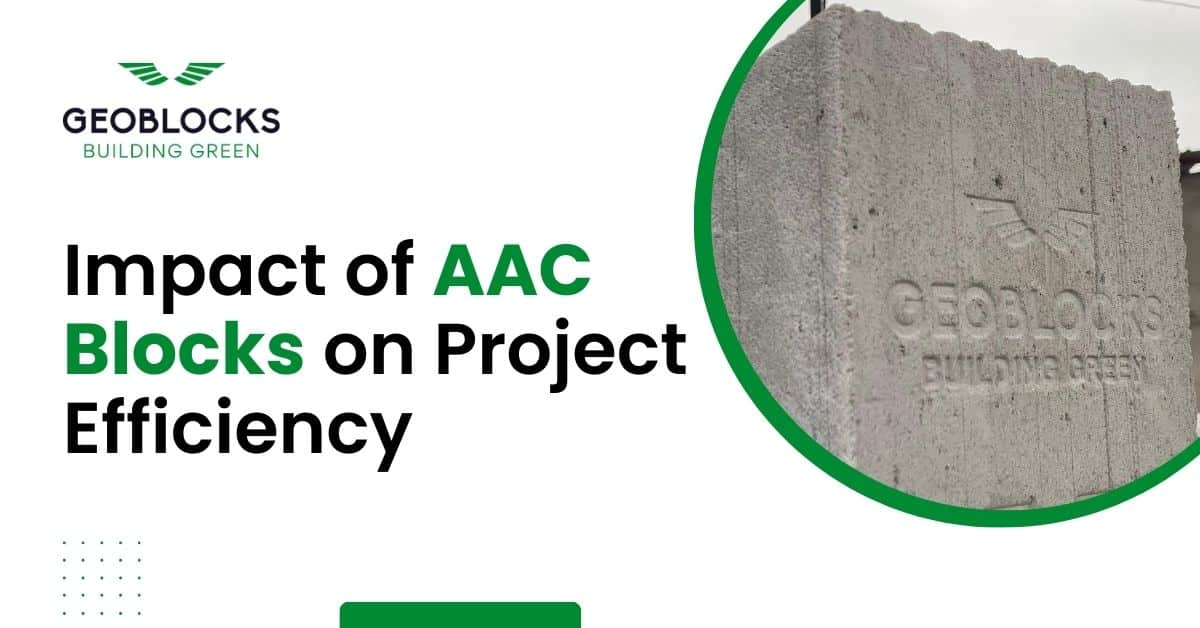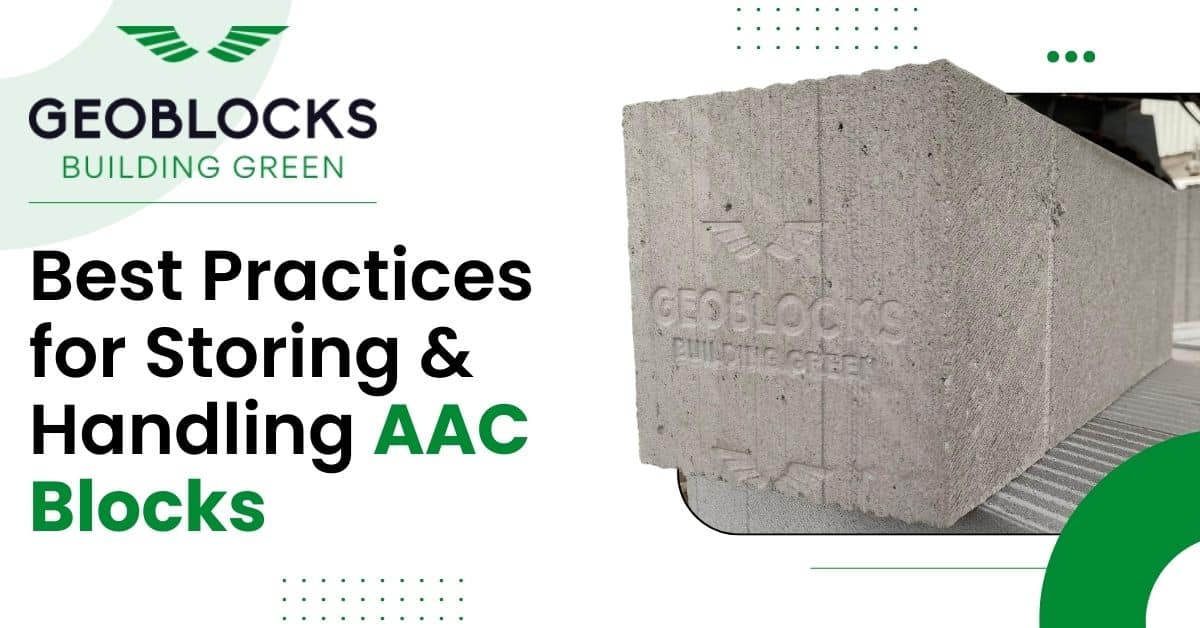Installing AAC blocks the right way is crucial for long-lasting, energy-efficient, and eco-friendly construction. Whether…

In the Realm of Construction, the Mortar for Concrete Blocks is pivotal in ensuring Durability and Structural Integrity. At GEOBLOCKS, we understand the Importance of Selecting the Right Mortar for Concrete Blocks for your Projects, and we delve into the Various Types and their Applications.
What is Mortar for Concrete Blocks?
Mortar is a mixture of Cement, Sand, and Water used to bind Concrete Blocks Together. It acts as a Glue that holds the Blocks in Place, forming a Solid and Cohesive Structure.
Types of Mortar for Concrete Blocks
Cement Mortar: Composed of Cement, Sand, and Water, Cement Mortar is versatile and offers Excellent Strength. It’s suitable for general-purpose applications and provides good adhesion to Concrete Blocks.
Lime Mortar: Lime Mortar is softer and more flexible than Cement Mortar, allowing for slight structural movement. It’s ideal for Historical Buildings or Structures where Flexibility is Required.
Gypsum Mortar: Gypsum Mortar, made from Gypsum Plaster, is lightweight and offers good Fire Resistance. It’s commonly used for Interior Applications such as Plastering Walls.
Mud Mortar: Mud Mortar, traditionally made from Clay and Water, is Eco-friendly and provides Good Insulation. It’s suitable for non-load-bearing walls or sustainable construction practices.
Choosing the Right Mortar
Strength Requirements: Consider the load-bearing capacity and environmental conditions. Cement mortar is often preferred for its high strength and durability in varied climates.
Application: Lime Mortar is chosen for its breathability and compatibility with historical restoration, while gypsum mortar excels in fire resistance and interior applications.
Climate Suitability: In regions with high humidity or seismic activity, flexible lime mortar or resilient cement mortar may be more suitable.
Frequently Asked Questions
What are the Typical Applications of Mortar for Concrete Blocks?
Mortar is primarily used to bind concrete blocks together in both interior and exterior construction projects, providing structural stability and a smooth finish.
How do I choose between Cement, Lime, Gypsum, and Mud Mortar for Concrete Blocks?
Consider factors such as strength requirements, application specifics, and climate conditions. Cement mortar offers high durability, while lime mortar is ideal for historical buildings due to its flexibility.
Is Mortar Suitable for Sustainable Construction Practices?
Yes, especially mud mortar, which is eco-friendly and provides good insulation. It’s commonly used in non-load-bearing walls for sustainable building initiatives.
What are the Advantages of using Gypsum Mortar in Interior Applications?
Gypsum mortar offers lightweight properties and excellent fire resistance, making it suitable for interior plastering and wall applications.
How does Mortar Contribute to the Durability of Concrete Block Structures?
Mortar acts as a cohesive agent that binds concrete blocks together, enhancing structural integrity and longevity against environmental factors.
What is the Typical Lifespan of Mortar in Concrete Block Construction?
A mortar’s lifespan depends on factors such as climate, maintenance, and quality. Properly applied mortar can last several decades, providing long-term structural support.
Conclusion
Choosing the Right Mortar for Concrete Blocks is essential for achieving a Robust and Aesthetically pleasing Structure. At GEOBLOCKS, we offer a range of high-quality Mortars tailored to meet diverse construction needs in Vadodara and beyond. Whether you’re Constructing a Residential Space or a Commercial Project, our expertise ensures you get the Best Mortar for Superior Performance. Explore our Comprehensive Range of Mortar Solutions and Elevate your Construction Projects with GEOBLOCKS Today.




